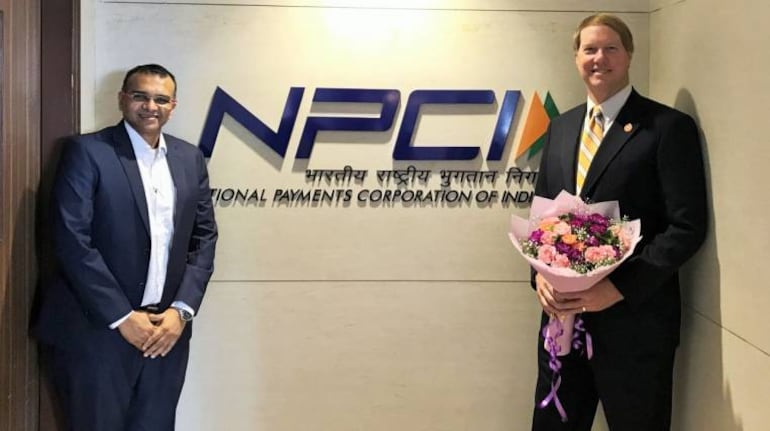A ‘NUE’ rival for NPCI is in the making : Why does the RBI want another entity for retail payments?
The RBI and the government have been pushing for ‘cashless’ economy aggressively. The central bank’s assessment is that NPCI alone cannot manage the big shift.

On February 26, the Reserve Bank of India (RBI) extended the deadline for making applications for authorisation of pan-India Umbrella Entity for retail payments till March 31. The central bank had invited applications for this on August 18 and gave time for six months to apply. The reason cited for the deadline extension is COVID-related disruptions and inconveniences. But, the chatter within the central bank is that there is a rush of fresh applicants.
The move comes against the backdrop of report that Amazon, along with ICICI Bank, Axis Bank and Visa will present a proposal to the Reserve Bank to set up a New Umbrella Entity (NUE). Another report claimed that PayTM, Ola and IndusInd Bank too plan to join the race for the NUE licence.
What does the central bank want from this NUE model?
To put it simple, the RBI (and the government) want to bring more people into the digital payments channels from cash transactions. Digital transactions are more transparent and tax authorities can keep an eye on money movement, unlike cash exchanges. One of the key points in the Narendra Modi government’s economic agenda is to create a ‘cashless’ economy by supporting the shift to non-cash payments.
What is the current scenario?
As of now, the government-owned National Payments Corporation of India (NPCI) is the sole umbrella body to facilitate retail payments. It owns and operates the UPI Interface, the RuPay network and other payment and settlement functions. But, the government and the RBI feel that NPCI alone won’t be able to carry out the big shift to digital considering the volume of transactions and the number of new entrant.
The NUEs will effectively offer competition to the NPCI. Just like NPCI runs UPI, IMPS and other payment modes, the NUEs will create similar mechanisms which will then be used by banks and fintech companies.
The regulator outlines the scope of activities of NUE in six parts:
The RBI guidelines are clear on the plan.
One, to set up, manage and operate new payment systems in the retail space comprising ATMs, White Label PoS; Aadhaar- based payments and remittance services; newer payment methods, standards and technologies, monitor related issues in the country and internationally and, finally, take care of developmental objectives like enhancement of awareness about the payment systems.
Two, operate clearing and settlement systems for participating banks and non-banks, identify and manage relevant risks such as settlement, credit, liquidity and operational and preserve the integrity of the system, monitor retail payment system developments and related issues in the country and internationally to avoid shocks, frauds and contagions that may adversely affect the system or the economy in general.
Three, fulfil the policy objectives and ensure that principles of fairness, equity and competitive neutrality are applied in determining participation in the system, frame necessary rules and the related processes to ensure that the system is safe and sound and that payments are exchanged efficiently.
Four, Carry on any other business as suitable to further strengthen the retail payments ecosystem in the country. “It is expected that the umbrella entity shall offer innovative payment systems to include hitherto excluded cross-sections of the society and which enhance access, customer convenience and safety and the same shall be distinct yet interoperable,” the RBI said.
Five, to interact and be interoperable, to the extent possible, with the systems operated by NPCI.
Six, to participate in the Reserve Bank’s payment and settlement systems, including having a current account with the central bank, if required.
Who can participate?
Private entities with a paid-up capital of Rs 500 crore and meet the RBI’s fit and proper criteria can throw their hats in the ring. As per the RBI rules, the Promoters or Promoter Groups need to upfront demonstrate capital contribution of not less than 10 percent or Rs 50 crore at the time of making an application for setting up of the umbrella entity.
The balance capital shall be secured at the time of commencement of business/operations. The promoter/ promoter group shareholding can be diluted to a minimum of 25 percent after five years of the commencement of business of the umbrella entity. A minimum networth of Rs 300 crore needs to be maintained at all times.
What is the structure of NUE should be?
The umbrella entity needs to conform to the norms of corporate governance along with ‘fit and proper’ criteria for persons to be appointed on its Board. It needs to have a business plan covering the payment system/s proposed to be set up and operated along with other documents to duly establish its experience in the payments ecosystem.
Such plan should include technology, security features, market analysis, research, benefit, if any, of such payment systems, operational structure of the payment systems, time-period for setting up the payment systems and proposed scale of operations, etc., the RBI has said.
The umbrella entity will have to commence business within a time of six months, extendable to a maximum of one year, if required, from the date of ‘in-principle approval’.
The RBI’s move makes sense given the surge in digital transactions in recent years. Particularly post the 2016 demonetisation exercise, there has been a major shift to digital payments. Between 2015-16 and 2019-20, digital payments have grown at a compounded annual growth rate of 55.1 per cent – from 593.61 crore in the year to March 2016 to 3,434.56 crore in the year to March 2020.
Clearly, there is a big market out there for digital payments. NPCI will have to get ready for its deep-pocketed ‘NUE’ rivals.




